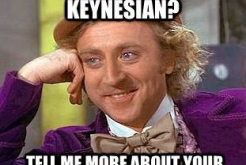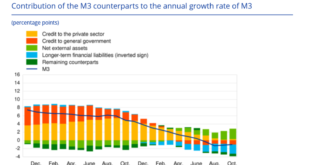No Christmas celebration on this blog this year. But a story about communities: the Commons of Buren and Hollum on the Waddensea island of Ameland. Commons have been studied by Elenor Ostrom. Studying Commons is of prime importance: we only have one earth. Reading Ostrom makes one optimistic. One of the things she mentions is the age of commons. Often, they survived centuries. Commons, which invariably voluntarily set limits on the use of resources, are sustainable. The Ameland Commons...
Read More »new and special issue of RWER
Please click here to support this open-access journal and the WEA real-world economic review issue no. 106 download whole issue Special IssueHow can we construct an economics consistent with the biophysical limits to economic growth? Invitation 3 PART I – PARTIAL ANSWERS TO THE QUESTION Economics as if ecology matteredPeter Newell 5 An economic theory compatible with life processes and physical lawsJames Galbraith 13 Supporting well-being over time: Six kinds of capital required in a...
Read More »Something about prices (IV). Gift exchange prices.
Not all prices are market exchange prices. I’ve been writing about administered prices (here and here) and ‘commons’ prices (here). In January, I hope to make a first small step towards a badly needed periodic table of prices. Today a new element, Gift Exchange Prices. Gifts are like the Greeks. They come in many varieties. But always, something is transferred from somebody to somebody, even when there often is no market price or even transfer of ownership. There might be a transfer of...
Read More »Book review – Real-world economics for whom and for what?
from Yoshinori Shiozawa Review of John Komlos, Foundations of Real-World Economics / What Every Economic Student Needs to Know, Third Edition, 2023 Introduction This review article must not be too long. Readers of this Real-World Economics Blog are accustomed to read posts less than one thousand words. I want to limit it within three thousand words. In view of the objective of the new book review series (to create a forum to inform each other), this must be too short. No detailed account...
Read More »Wages. Just for fun.
from Peter Radford This is just for fun. It’s nearly the holiday season after all. Let’s tell a story: a friend of ours here in southern Vermont was looking for a job. She saw an advertisement posted by a local business. Or, perhaps, she heard something about a job from a friend. In any case she applied and got the job. Well done. Her wage is, naturally, determined by her marginal productivity. We all know that. All wages are determined by individual worker marginal productivity....
Read More »Positivism & the loss of meaning
from Asad Zaman and WEA Pedagogy Bog I recently gave a talk to students of Modern Money and Economics of Sustainability at Torrens University. The video of the talk is here. I have also written up some notes about this talk which clarify some points only sketched briefly in the talk, and provide links to more detailed discussions. The following writeup provides some details and background missing from the talk, and also links to related materials: The transition from a traditional...
Read More »‘New Keynesianism’ — more useless than ever
from Lars Syll “the heart of darkness in ‘New Keynesian’ macroeconomics” Macroeconomic models may be an informative tool for research. But if practitioners of ‘New Keynesian’ macroeconomics do not investigate and make an effort to provide a justification for the credibility of the assumptions on which they erect their building, it will not fulfil its tasks. There is a gap between its aspirations and its accomplishments, and without more supportive evidence to substantiate its claims,...
Read More »Weekend read – The great re-boot. Perhaps.
from Peter Radford I keep coming upon ideas that seem to make such sense that, surely, they have been imported into economics. But, no, hubris prevents an expansion of the discipline to include such novelty. The threat they represent to the entire mainstream edifice is too much of a threat. The guild closes ranks. The guild closes its mind. And gets quite snooty in the process. Outsiders are seen as simple, lacking in basic understanding, or naively misunderstanding the great...
Read More »Credit in the Euro Area: a recession has arrived
According to the Monetary Statistics of the European Central Bank, the credit impulse to the Euro Area economy is getting even weaker (graph 1, the yellow part of the bars). Which not only forbodes a recession but already is a recession. Graph 1. Monetary developments in the Euro Area. Source. This interpretation (the EA is in a recession) gains credibility when we realize that most of the remaining net credit is used to finance the purchase of existing houses and not to finance...
Read More »When it comes to prescription drugs, the Washington Post can’t even conceive of free trade
from Dean Baker Like many self-imagined “free-traders,” the Washington Post editorial board cannot even conceive of free trade when it comes to prescription drugs. They demonstrated this fact yet again in discussing ways to deal with the high price of effective weight-loss drugs like Wegovy. These drugs carry price tags of more than $1,000 a month, making them costly for insurers, governments, or individuals who have to pick up the tab themselves. The Post throws out a couple of ideas...
Read More » Real-World Economics Review
Real-World Economics Review




